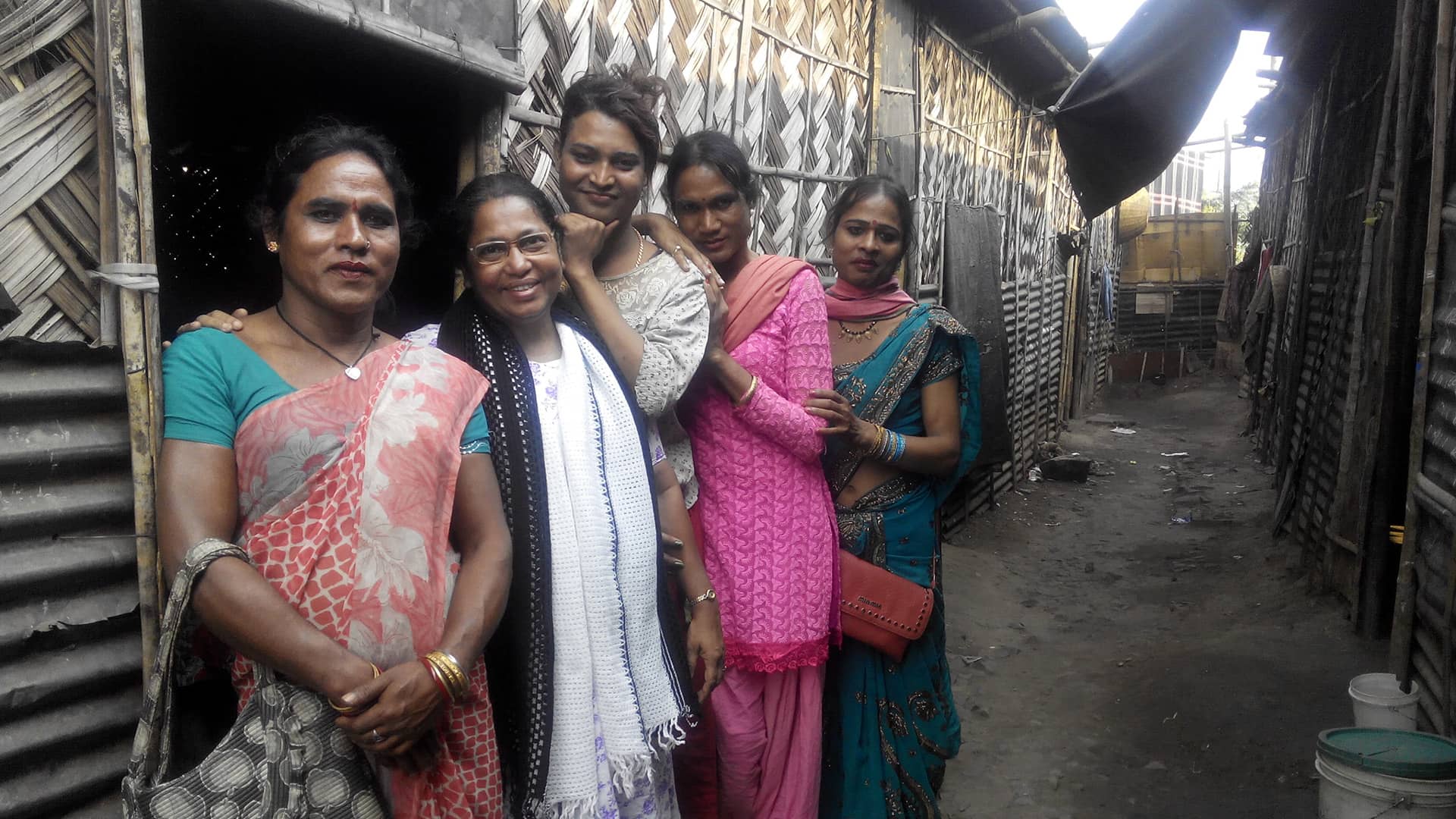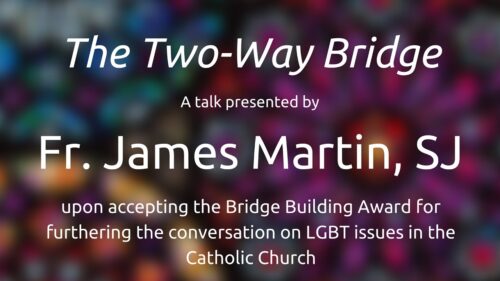In 2016, as I travelled on a bus in Guwahati City, Assam, India, I came into contact with people who carried within themselves a fear, or hatred, towards the transgender community, sometimes called “transphobia.”
A vacant seat prompted me to sit next to someone. It confused me why no one was sitting in the empty seat, preferring instead to stand and cling onto the holders that hung from a rod above. As I sat next to this woman, everyone’s eyebrows went up in surprise.
As I conversed with her, I realized that she was a transgender person; she had been ostracized from her family. As a result, she was forced to leave the city and run away to a neighboring city, in order to survive.
Our encounter, and the reactions of the people on the bus, disturbed me. So I started an inward journey, asking myself, “Am I not called to serve them? Why are they so excluded? What mistake did they make in their lives? Why is there such aversion to this community? Shouldn’t I work for them as a Consecrated Person and as a follower of Jesus, my Master? Did He not enter the lives of the outcasts and sinners?”
These churnings within left me with many sleepless nights.
I dared not share these questions with anyone in my religious community, since I wasn’t sure if they would support my idea of ministering to them. Nevertheless, I took a step forward to reach out to this community.
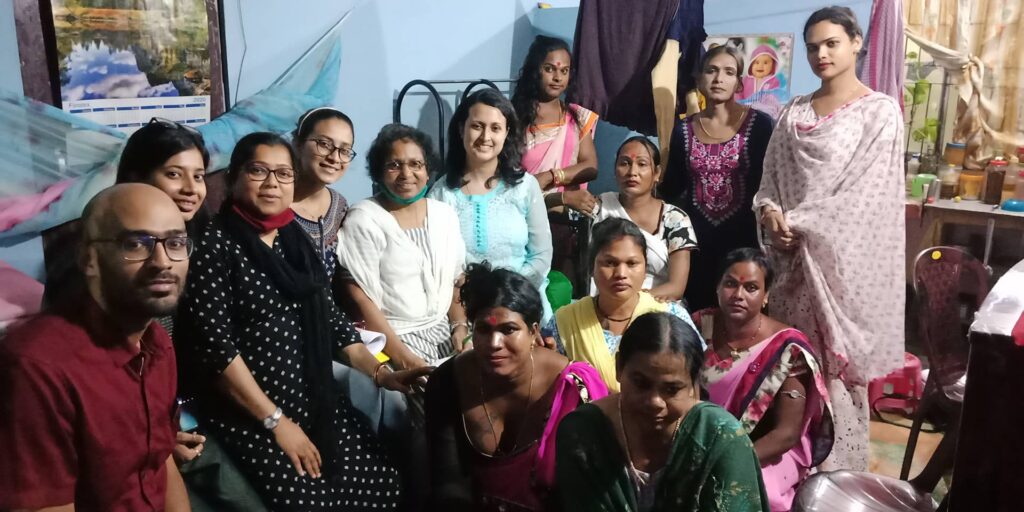
A peep into the backyards, the railway slums
My step forward was to enter the slums located beside the railway tracks, where transgender people huddle together as a community. They are not allowed to pass through the front yards of the families’ homes. Their way to the city is through the hidden backyards and over rickety bamboo bridges that span the dirty, stinking gutters. They are known for begging and sex work, outcasts who live in backyards, where no one dares to enter.
Here I remembered the Gospel story of the Woman at the Well and the compassionate entry of Jesus into her life (Jn 4: 4-26). In this story, Jesus speaks to a Samaritan woman for a long time, listening to her experiences, and treats her with great dignity. A man who sought out the sinners and outcasts is my Guru, my Master.
Happily, my religious order’s General Chapter in 2019 had emphasized the theme of “Reaching out to the peripheries,” which supported my vision and the dream to work for the people living in the backyards, the peripheries and the margins.
My congregation was in full support of opening a shelter home for the trans community to provide them not only physical shelter but also a spiritual and moral shelter.
Many of the transgender people who live in the slums beside the railway tracks share with me the tales of their life: the hard and tough times they went through when they were thrown out of their family homes and abandoned by friends because they were different.
Let me tell you about my friend Rasha.
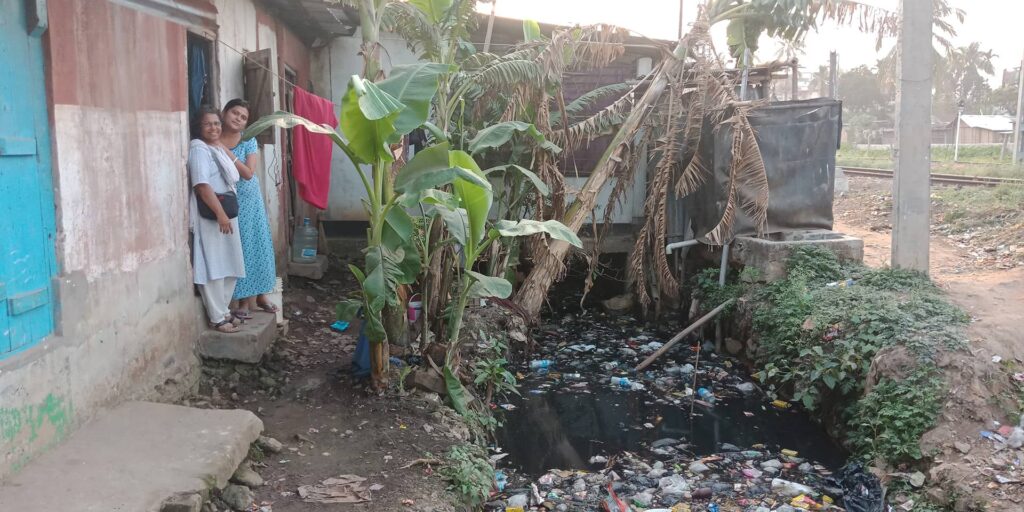
Rasha’s heartbreaking story
Rasha was born in a lower-middle-class family that lived in the middle of the tea gardens of Northeast India. The doctors said Rasha was a boy. But Rasha could not accept the fact that s/he was a boy. From the childhood Rasha mingled with girls, dressed and tied her long hair and behaved exactly as girls did. Besides, s/he played, danced and sang songs, like any other girl did. From her very childhood, she wore only girls dress and never trimmed the hair.
Rasha lost her father in her childhood and so they lived in her maternal uncle’s house. Uncles loved her and carried Rasha wherever they went. But once Rasha turned 14 they forced Rasha to wear male clothes, cut her hair and trimmed her nails. (Her widowed mother never had any objection to any of Rasha’s ways.)
The uncles began to torture her mother as well as Rasha, saying that she should not stay in this house since Rasha was “bringing shame” to the family. The next rude step they took was to chase away Rasha from the house at midnight.
So Rasha ran away from the house in the middle of the night to escape the wrath of her maternal uncles. She was rescued by her friend in the village then. She left home, never to return. Nonetheless, Rasha’s mother still wanted to see her.
After Rasha reached the city of Guwahati, she did not reveal her identity to people. They considered Rasha a woman and she served people in the kitchen and later as a hostel warden.
The fear of someone recognizing her physical identity gripped her. Rasha did not want to join the trans community lived in slums. She wanted to lead a dignified life. Unfortunately, she was not able to go to school. On top of that, the time of closure during the pandemic affected her job and the hostel where she worked was forced to close down.
She was left with two options: either ask Sister Prema to open a shelter home for trans people and join the shelter home or commit suicide. When told me about her situation, I asked my religious superiors, who agreed to open a shelter home for trans community. Thus Rasha’s story became the birth story of Rainbow Home of Seven Sisters (RHoSS).

Today Rasha goes home to see her mother. She does not enter her childhood home but stays with the friend who gave her a place to say the night when she was chased from home.
My transgender friends like Rasha, now say to me, “You are our mother as we have none on earth to love as a mother.” When they call me “Maa,” I am delighted and feel proud to be their own. I get a sense of satisfaction, a kind of fulfillment of my consecrated life.
In the story of the Resurrection, we remember that Mary Magdalene called the Risen Christ “Rabbouni,” which means “Master” or “Teacher” (Jn: 20:16.) And Christ calls her “Mary.”
This moment of mutual recognition deepened their relationship: Mary called Jesus her Master, and the Risen Christ called Mary by her name, as a friend would.
When the trans people call me “Maa” I’m brought into a closer relationship with them and challenged to love them as a mother would.
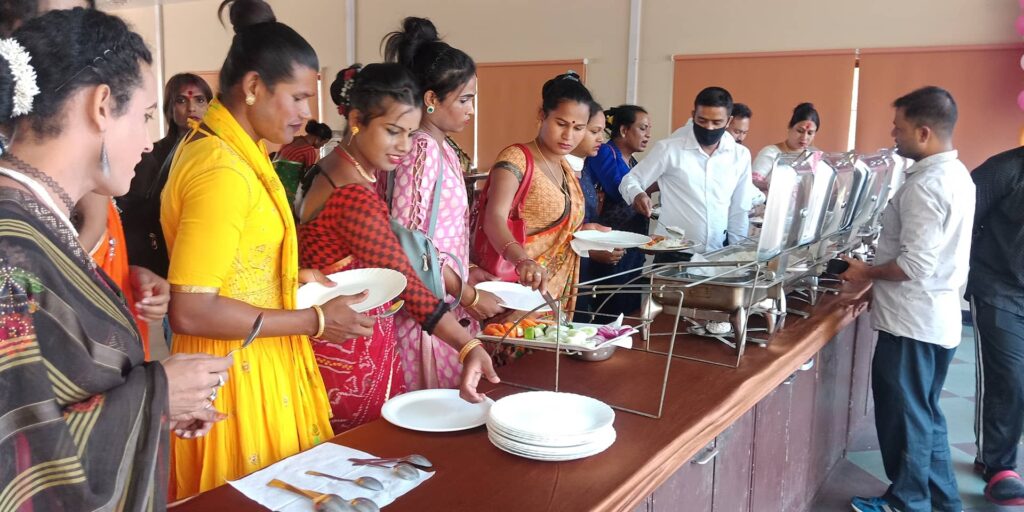
Late have we loved them
Each LGBT+ person has a message for me. They speak in my ears but what they say—their joys and hopes, their pain and struggles–echoes in my heart and vibrates my soul.
As we read in the prayer of St. Augustine, “Late have I loved you, O Beauty so ancient, O Beauty so new….”
We are loving trans people very “late” indeed. Humanity has failed to realize the beauty that lies within a variety of expressions of love. As I see it, God manifested His love for the universe in different ways, and so a great variety in creation came into existence. God’s beauty is diffused in myriads of colors, which gave birth to diversity in beauty.
We have lost an appreciation for the variety, beauty and diversity in our families, in our churches and in our society.
We have lost much more too, by excluding these people, as Jesus’s parables of “lost things” and “lost people” illustrate: We have lost precious coins (Lk:15:8-10). We have lost precious sheep (Mt. 18:10-14). And we have lost beautiful daughters and sons, as in the Parable of Prodigal Son (Lk:15:1-32).
So we need to ask ourselves:
Can we hear the cry of our lost daughters and sons from the backyards?
Can we hear the sobs of our lost brothers and sisters from the margins of our society?
Can we hear the weeping of our lost friends and neighbours from the peripheries of our hearts?
Listen to the backyards
Our ministry today is to listen to the sounds emerging from the backyards where none wish to visit or walk into. We are called to search for the lost brothers and sisters, and friends and neighbors. We have to wipe their tears and bathe their feet with a sense of repentance for what we did to them, for our failure to recognize their preciousness. We need to embrace them.
Forget the past, my brothers and sisters: Let us march forward together hand in hand to bring God’s reign on earth for all people, including these beloved friends of mine, and of Jesus.

